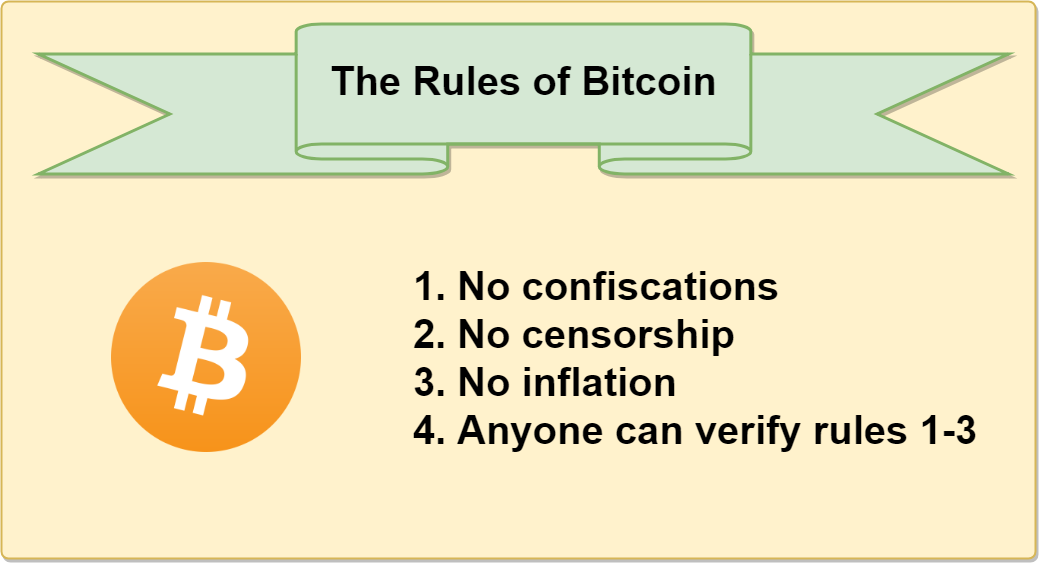Over the last few years, infighting and different visions has led to significant divides within the Bitcoin community, weakening the network effects no matter which chain you support. With all the arguments about scaling, privacy, consensus changes and the various forks, it is amazing that these public networks are still thriving. Nevertheless, the people who maintain the various software protocols that communicate with Bitcoin and the network’s many participants have lives that are finite — which means we don’t know if future generations will change the social contract Satoshi Nakamoto created years ago.
Also Read: Core Developer’s 300kb Block Proposal Bolstered in Bid to Push Lightning Adoption
Understanding the Social Layer of Bitcoin
The technology we all know and love called Bitcoin has changed the lives of many individuals over the last 10 years. However, during the latter half of that decade, the humans who have maintained the protocol have relentlessly argued over how it should operate. This has led to a large community divide, endless fighting, and many different forks. The protocol itself, however, has been able to continuously perpetuate the social contract we call “Bitcoin” during this period. However, the arguments have led to wavering opinions and whimsical ideas that threaten the Bitcoin network’s social contract.
The independent cryptocurrency researcher Hasu Fly details the social contract very well in his memorable essay “Unpacking Bitcoin’s Social Contract.” Within the editorial Hasu details that fiat money is a social contract or an agreement between the citizens and the state. Many individuals reject this social contract though and believe the state fails to gain true consensus because it uses force as a means to manage each country’s economy. With Bitcoin, things are quite different and the protocol is used by individuals and organizations in a completely voluntary manner.
“Many don’t realize that Bitcoin works through a social contract as well,” explains Hasu’s essay. “The social layer and its rules are the heart of Bitcoin.”
After describing in great detail on how fiat money and Bitcoin are both social contracts, Hasu then reveals the rules of the network’s underlying social contract. The researcher details that Satoshi Nakamoto settled on four distinct rules: confiscation resistance, censorship resistance, inflation resistance, and counterfeit resistance. Essentially this means the owner of the coins can hold keys to the currency without it being taken away, and the owner can also transact on the network without permission. An owner of any amount of bitcoin knows that the protocol has a limited supply, and last but not least anyone can verify the first three rules at any time using the transparent and public blockchain.

Future Generations Could Drastically Change Bitcoin
So far the technology has stayed true to the social contract and one could easily say this applies to each network whether it be BTC or BCH. Hasu’s essay also details that most of the time social contracts do not fork, but the BCH fork was a rare case scenario and what was left over was “two weaker social contracts — each agreed to by fewer people than the old one.” However, we have yet to cross past one generation with the social contract in the decade since the genesis block. When people recently discussed changing the 21 million capped supply the community went ballistic, but in 10 more years we don’t know if future generations will be more willing. The average human generation is between 25-30 years and bitcoin could be changed drastically in 40 years if the social contract is not upheld today. Let’s face it, over time generations change things and some of those revisions are good and sometimes they are awful — like changing from the gold standard to fiat and trusting central banks.

For now, some of the lead developers of reference implementations are kings of the hill – or at least that’s how they act. But over time, younger generations who are smarter and can code better will challenge these open source developers, and at some point their skills will be useless. Ultimately when money is used as a social contract, participants vote by either using the tender or seeking alternatives. Furthermore, money not only applies to its own social contract theory in a general sense, but also weaves within other social contracts within our society. Like it or not, any one of the two dominant Bitcoin chains may be chosen by the masses by coexisting in an entirely different way and one chain may not survive over the next decade.

Bitcoin’s 4 Fundamentals Must Be Passed On
Still, if the first generation of users decides to stick to the rules of Bitcoin’s social contract they must continue to strengthen the agreement. After 10 years, many well-known bitcoiners are willing to dismiss the global understanding and want to discuss changing the rules. Some supporters want to instill censorship by only giving affluent individuals the ability to transact onchain and store value in Bitcoin, by bolstering a barrier to entry with expensive network fees.

The ultimate goal has always been “hyperbitcoinztion,” but if we waver on the very foundations of Bitcoin’s social convention then nothing will be socially, morally, and rationally justified. Over the last few years, some people have dismissed Satoshi’s genius and the fact he created a near perfect system that has been Byzantine fault tolerant for 10 years with 99.98332 percent uptime. Many people to this day, whichever camp they are in (BCH or BTC), still believe in Bitcoin’s rules wholeheartedly. However, with all the infighting and shifting opinions on the true meaning of rules 1-4 these issues may challenge future generations. The Bitcoin network we know of today may not be the same when our sons and daughters begin to truly participate unless we keep some consistency on the social layer. It is quite obvious that those who do not want Bitcoin’s technology to succeed are attacking the root of the social layer today, and will not relent until they have achieved their aims.
What do you think about future generations changing the social contract called Bitcoin? Let us know what you think about this subject in the comments section below.
OP-ed disclaimer: This is an Op-ed article. The opinions expressed in this article are the author’s own. Bitcoin.com is not responsible for or liable for any content, accuracy or quality within the Op-ed article. Readers should do their own due diligence before taking any actions related to the content. Bitcoin.com is not responsible, directly or indirectly, for any damage or loss caused or alleged to be caused by or in connection with the use of or reliance on any information in this Op-ed article.
Image credits: Shutterstock, Pixabay, Vacate Wall Street, and Hasu Fly’s 2018 essay.
Need to calculate your bitcoin holdings? Check our tools section.




